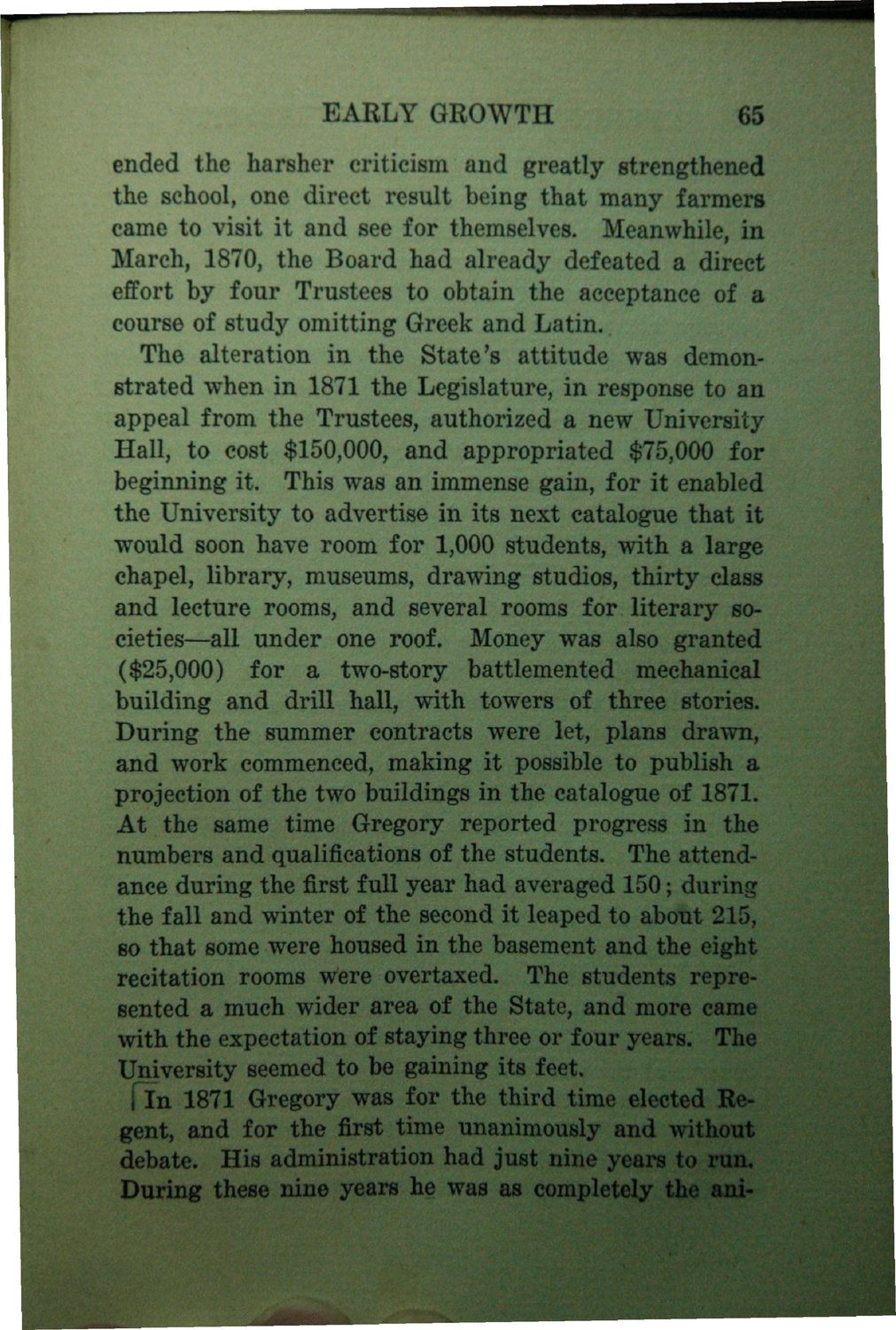| |
| |
Caption: Book - History of the University (Nevins)
This is a reduced-resolution page image for fast online browsing.

EXTRACTED TEXT FROM PAGE:
EABLY GROWTH 65 ended the harsher criticism and greatly strengthened the school, one direct result being that many farmers came to visit it and see for themselves. Meanwhile, in March, 1870, the Board had already defeated a direct effort by four Trustees to obtain the acceptance of a course of study omitting Greek and Latin.. The alteration in the State's attitude was demonstrated when in 1871 the Legislature, in response to an appeal from the Trustees, authorized a new University Hall, to cost $150,000, and appropriated $75,000 for beginning it. This was an immense gain, for it enabled the University to advertise in its next catalogue that it would soon have room for 1,000 students, with a large chapel, library, museums, drawing studios, thirty class and lecture rooms, and several rooms for literary societies^—all under one roof. Money was also granted ($25,000) for a two-story battlemented mechanical building and drill hall, with towers of three stories. During the summer contracts were let, plans drawn, and work commenced, making it possible to publish a projection of the two buildings in the catalogue of 1871. At the same time Gregory reported progress in the numbers and qualifications of the students. The attendance during the first full year had averaged 150; during the fall and winter of the second it leaped to about 215, so that some were housed in the basement and the eight recitation rooms were overtaxed. The students represented a much wider area of the State, and more came with the expectation of staying three or four years. The University seemed to be gaining its feet. fin 1871 Gregory was for the third time elected Regent, and for the first time unanimously and jkthout debate. His administration had just nine yearaito run. During these nine years he was as completely the am-
| |